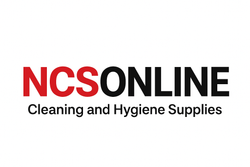The chemical hydrogen peroxide is a common ingredient in many bleaches, dyes, cleansers, antiseptics, and disinfectants. This versatile liquid has many potential uses but also several safety concerns if people use it incorrectly.
Hydrogen peroxide is a chemical compound of hydrogen and oxygen (H2O2). It's a natural disinfectant that bubbles when it comes into contact with an enzyme called catalase. Catalase is found in most cells, including blood cells and some bacteria. Since catalase is not found on the surface of human skin, hydrogen peroxide only bubbles on broken skin. Those bubbles are a reaction that releases oxygen gas
Due to its availability and antiseptic properties, many people consider hydrogen peroxide a staple in their medicine cabinet and first aid kit.
Hydrogen peroxide may come in different strengths, or concentrations, depending on the intended use. Some common concentrations include:
- 3%, the typical concentration for household products, teeth whitening and wound cleaning.
- 6–12%, the concentration in some hair dyes
While a person may safely use weaker concentrations of hydrogen peroxide, it can still cause internal and external irritation and other complications. The risk of using hydrogen peroxide increases with higher concentrations.
Hydrogen peroxide is produced industrially in large quantities. The main use of hydrogen peroxide is as a bleaching agent for wood pulp, as well as for bleaching textiles, paper and food. It is also used as a chemical intermediate in the production of a wide range of chemicals, plastics and pharmaceuticals.
Hydrogen peroxide is used to treat waste water and sewage from industrial and domestic sources and for detoxifying organic pollutants in the environment. It is also used as a commercial disinfectant and antimicrobial agent.
SOME USES OF HYDROGEN PEROXIDE
To Clean Cuts
Your mom probably used hydrogen peroxide to clean your cuts when you were a kid. She was right! It's great for rinsing away dirt (like when you fell off your bike and skinned your knee) and dried blood. While the solution is helpful for first aid, hydrogen peroxide shouldn't be used to clean a wound regularly. First of all, it doesn't kill every kind of bacteria. And secondly, it also kills fibroblasts, a tissue your body uses to heal itself.2
As a Disinfectant
Hydrogen peroxide is a great way to disinfect your home. Use it to clean your dirty dish scrubbers, rags, sponges, and toilet brushes. (They don't clean themselves!) It's also useful for cleaning items in sickrooms such as thermometers and bedpans.
In the Bathroom
Hydrogen peroxide is also useful for cleaning hygiene items like toothbrushes, loofahs, and other kinds of sponges. Plus it disinfects facial cleansing devices, shaving brushes, and makeup blenders.
To Clean Fruits and Veggies
Don't shell out money for those expensive fruit and vegetable washes when hydrogen peroxide can get the job done! Add a quarter of a cup to a sink full of cold water. Then rinse the produce well. It will get rid of any bacteria and pesticides.
To Clean the Dishes
Are your dishes looking dingy? Extra dirty after a heavy meal? Add two ounces of hydrogen peroxide to your liquid dish detergent for an extra cleaning boost.
It can also remove baked-on grime and food stains from dishes. Just combine with baking soda and scrub everything right off.
To Clean Your Refrigerator
The inside of the fridge can harbor bacteria. But using chemical cleaning products inside your refrigerator isn't ideal either. Just put some non-toxic hydrogen peroxide on a paper towel, rag, or sponge and use that to clean the shelves, walls, etc.
To Clean Your Shower
Struggling with mold and mildew? Hydrogen peroxide makes a great anti-fungal. Just pour some into an empty spray bottle, spritz away, and wipe down. You can even keep a bottle in the shower and do a quick spray down once a day. Replace the solution when the hydrogen peroxide no longer bubbles on contact with metal.
NCSONLINE provides a wide range of Hydrogen Peroxide concentrations in sizes ranging from 200ml to 25Ltrs. To purchase please visit the link below or email sales@ncsonline.co.uk for more information.
https://www.ncsonline.co.uk/collections/hydrogen-peroxide

